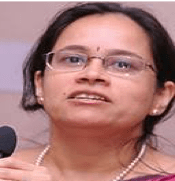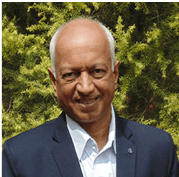In our final article about the proceedings of the Immuno-Jaipur course, we shall highlight talks given by faculty about their research on Primary immunodeficiencies (PIDs). In Dr. Mukesh Desai lecture, he shared the plight of children that suffer from PIDs whom are often misdiagnosed for cancers due to the symptoms presented by the patients. He also shed light on the current strategies to treat these patients and the early and accurate diagnosis of the patients.
Dr. Reinhord Schmidt gave a lecture on “Immunodeficiency and autoimmunity”. He began by addressing the problems with providing diagnosis including misdiagnosis and late diagnosis of PIDs due to the rarity of the disease. He brought to light that there are multiple strategies to treat and potentially cure the patient. The only hindrance to patient survival is early and accurate diagnosis of the patients. He stated that approximately 60% of PID patients are associated with autoimmunity. He also emphasized the potential for genetic analysis of inborn errors as a mode of early diagnosis for PIDs.
Dr. Manisha Madkaikar gave a lecture on “FACS based diagnosis of PIDs”, where she spoke about the challenges in patient diagnosis which often requires identification of genetic “abnormalities” and evaluation of immune profiles of patients. She highlighted the usefulness of Flow cytometry (FACS) in characterising the immune cells and thus predicting the genetic dysfunction as well as monitoring the immune response. She mentioned that with the help of FACS based assays, it is possible to identify novel genetic disorders that may lead to PIDs. She showed the data generated during the diagnosis process of over 700 patients that were analysed by her team. They were successfully able to molecularly characterise over 70% of the PIDs. They developed a FACS strategy that enables researchers to determine when to perform NGS or direct Sanger’s sequencing. For example, if a patient presents with perforin deficiency after the FACS assay, we would then sequence genes associated with perforin expression using Sanger’s sequencing, while patients presenting with SCID or defective degranulation (i.e. involves the activity of a large number of genes) must be sequenced using NGS.
Dr. Srini Kaveri, delivered a talk titled “From Behring to Burton and beyond: the story of intravenous immunoglobulins (IVIG)”. He began the lecture with a brief history of the development of immunotherapy and the discovery of immunoglobulins (Ig) as treatment which resulted in the Nobel Prize being awarded to Emil von Behring in 1901. He briefly explained the classification and function of the classes of antibodies (Ab). He highlighted that the goal of many researchers is to develop better immunoglobulins that are less toxic, more specific and economical. He emphasised on how intravenous Igs have proved to be the most efficient form of immunotherapy, as they are natural and that they would have large population of immunoglobulins against majorly non self pathogens.
In the concluding remarks, Dr. Mehra thanked all the participants, sponsors, local organizers from RUHS and invited speakers, and then officially closed the proceedings.
Article by Rushikesh Patil, Dimpu Gogoi and Mr. Naythan D’Cunha















